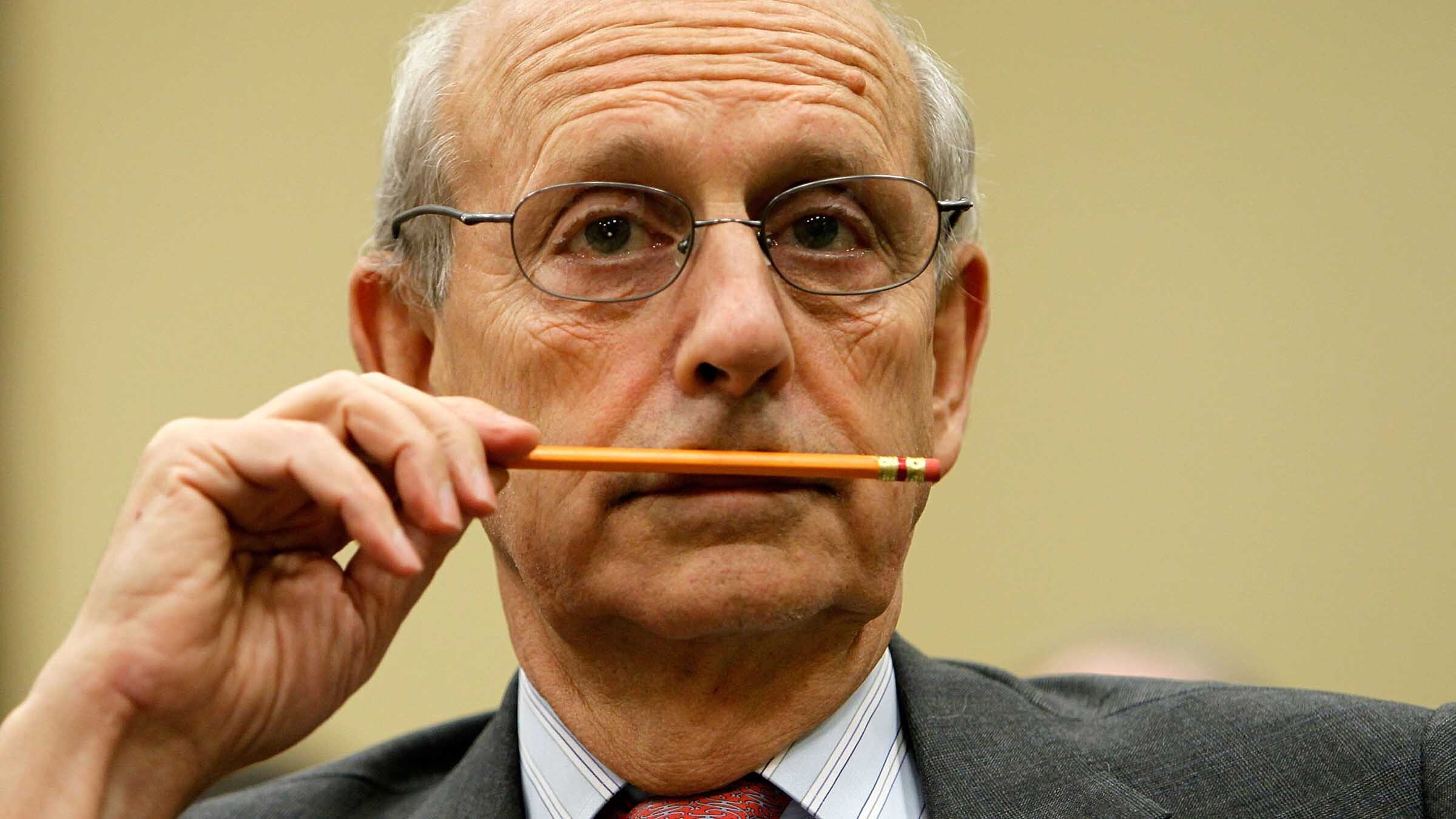Since President Joe Biden’s inauguration, Supreme Court Justice Stephen Breyer, a man who was born before World War II began, has faced considerable pressure to retire from people who are acutely aware of the consequences of an octogenarian liberal justice’s inopportune death, and are sensibly terrified of watching recent history repeat itself. Rather than step down in order to maximize the chances of this bare Democratic Senate majority confirming his eventual successor, Breyer has instead elected to write a book.
In The Authority of the Court and the Peril of Politics, Breyer argues that the Court risks losing its legitimacy if the public perceives it as acting “politically.” For the same reason, he believes that “structural change” to the Court—like, for example, expanding its size—is “a temptation better resisted.” In a series of promotional interviews, Breyer has hewed closely to a set of talking points that expand upon his thesis: Justices, he asserts, are more than “liberals” or “conservatives,” and do not act predictably as foot soldiers for the president who appointed them. Adding seats, he warns, is a dangerous slippery slope, because a tit-for-tat series of unabashed politically-motivated expansions will further erode public trust in the institution.
On a practical note, Breyer has repeatedly emphasized that he does not “intend” to die on the job. This both sounds great and, as far as I understand the mechanics of death, is also not something he can control.
At 101 pages, including an author’s note, a preface, and the acknowledgements, The Authority of the Court and the Peril of Politics is the jurisprudential equivalent of a book report written by a middle schooler whose primary concern was hitting the page count. Physically, it is tiny: At eight inches from corner to diagonal corner, The Authority of the Court and the Peril of Politics is roughly the size of the largest iPhone available for purchase. Holding this Tuesdays With Judge Morrie-ass pamphlet in your hands makes you feel like a giant reading a human-sized book authored by an 83-year-old man who has evidently absorbed no new information about the politics of judicial appointments since the Nixon administration. At a list price of $19.95, it is, on a page-for-page basis, the most expensive piece of literature this side of The Very Hungry Caterpillar. If this book review goes on too long, it will approach the length of the book itself.
Using 1L-year classics like Marbury v. Madison and Brown v. Board of Education, Breyer emphasizes the fragility of the judiciary’s power relative to the other two branches of government. “If the public comes to see judges as merely ‘politicians in robes,’ its confidence in the courts, and in the rule of law itself, can only decline,” Breyer explains. “With that, the Court’s authority can only decline, too, including its hard-won power to act as a constitutional check on the other branches.” Although he acknowledges that “a total and clean divorce” between law and politics is not possible, he assures readers that judges take seriously their oaths of impartiality and do not view themselves as “junior varsity politicians.” Their disagreements, he asserts, are instead the products of differences in judicial philosophy that are “not political in nature.”

Breyer’s arguments raise several obvious objections. He presumes both that the public is confident in the courts and the rule of law, and also that that confidence is well-earned and well-placed, which might come as news to the millions of Americans who have watched for hundreds of years as courts treated their civil and human rights like flash sales that could disappear at any moment. He raises and then explicitly declines to answer questions like “Are the nomination and confirmation processes working well?” and “Do appointments too closely reflect partisan political divisions?” and “Has the Court itself become politically partisan?”, all of which seem like reasonable subjects for a book titled The Authority of the Court and the Peril of Politics to tackle. His self-serving assertion that neither he nor his colleagues decide cases “on the basis of some general ideological commitment” exhibits a strain of naïveté that would be kind of embarrassing in an AP History essay, let alone a book by an honest-to-God Supreme Court justice.
The basic error of his argument, though, is that for people who are not law professors or life-tenured judges, “politics” and “judicial philosophy” is a distinction without a difference. For a Native voter in Arizona, it irrelevant whether the conservative justices decided Brnovich v. DNC because they believe it is the most faithful interpretation of the Voting Rights Act’s text, or because they are trying to make it harder for nonwhite people to vote and easier for Republicans to recapture the state in 2022 and 2024. For a woman living in Texas right now, it does not matter whether the conservatives believe Roe v. Wade is wrong as a matter of Fourteenth Amendment jurisprudence, or whether they decided Whole Woman’s Health v. Jackson to complete a half-century reactionary project to render Roe meaningless. Supreme Court decisions are “political” because they entail real-world consequences, no matter which set of convoluted logical rules the person making it claims to have scrupulously followed. Breyer is asking readers to accept the status quo based on his word that the judges who make morally bankrupt decisions are just thoughtful, enthusiastic debate club members who never meant to hurt anyone.
The section that prompted the most anguished temple-rubbing is Breyer’s proffered solution to the dangers posed by perceptions of a “political” Court: He closes by—I am not making this up—offering three steps people can take to help “maintain the public’s confidence in the Court and the law’s authority.” They are, in order, better civics education, more civic engagement and participation, and “practicing the skills of cooperation and compromise in order to learn them and to keep them.” If you are confused as to how a robust social studies curriculum, better library volunteer programs, and regularly-scheduled civilized debates in the town square would address the immediate, tangible threats posed by a 6-3 conservative supermajority that doesn’t believe in your right to vote, congratulations, you have diagnosed the problem better than the one man who needs to understand it most.
Whatever and whenever Breyer decides about retirement, maybe the most alarming revelation of The Authority of the Court and the Peril of Politics is the hint of how bad things could get in the meantime. On the eve of a term in which the conservatives may have the numbers to, among other things, get rid of Roe v. Wade for good, the nominal leader of the three-justice liberal wing has published a self-indulgent manifesto that preemptively excuses the Court’s most dangerous handiwork as the product of a system he insists isn’t broken. I cannot in good conscience recommend that you spend your hard-earned money on a copy, unless he happens to mention in an upcoming interview the approximate number of books he’d need to sell to feel comfortable retiring, in which case we can talk about it.


